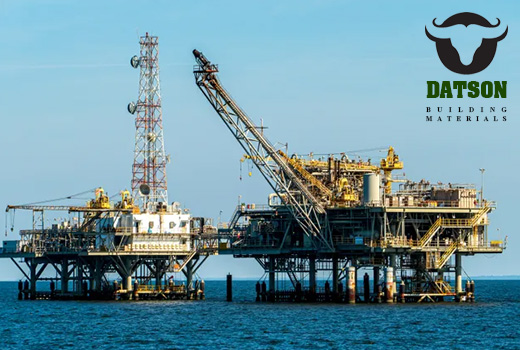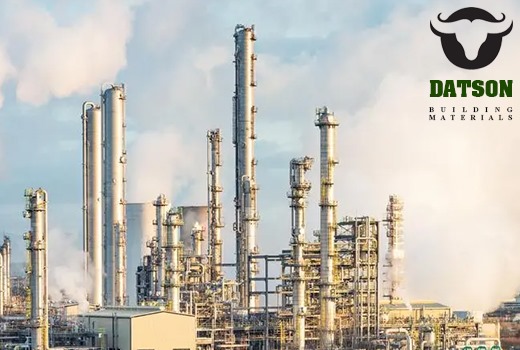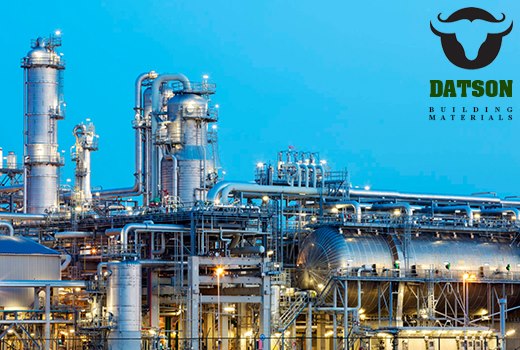Barite is a naturally occurring mineral of barium sulphate (BaSO₄). It plays a crucial role in the oil and gas industry. High density, rich chemical stability, and availability make it a primary material in the formulation of drilling fluids, most often termed drilling mud. These fluids help the exploration and extraction of oil and gas and render safety, efficiency, and regulatory compliance. Barite powder for oil drilling is widely used due to these properties, making it essential in petroleum applications.
The present article discusses barite’s significant role in drilling fluids, benefits, applications and contribution to the oil and gas industry. It further explores how barite used in oil drilling contributes to operational efficiency. The conditions under which barite in drilling mud is indispensable are stated as follows:
There are many functions of drilling fluids in oil and gas activities:
- Well stabilization prevent blowouts by maintaining wellbore. Barite for oilfield helps ensure safe borehole pressure management.
- Lubrication reduces friction of the drill bit over rock, carrying rock cuttings to the surface and keeping the wellbore clean.
- Cooling drilling fluids take away the heat generated during drilling.
Considering all the above functions, the composition of drilling fluids has to be subjected to strict technical specifications, and thus, the need for adding barite drilling mud becomes quite relevant.
Barite’s key ingredients in Drilling Fluids
Barite is weighty and of high specific gravity (4.0–4.5) and is an excellent weighting agent. This aids in controlling the pressure within the wellbore and enables the safety of operations. This property makes barite aiding drilling fluids in oil industry operations extremely effective.
Basic Properties of Barites for Drilling Fluids
- High Density: Weight is added to the drilling fluid to enable it to withstand subsurface pressure. This is why barite in drilling fluids is so critical.
- Chemically Inertness: They are stable by the non-reactivity of the components of the drilling fluid, which makes no reaction occur.
- Grindable into Fine Particles: Barites fine powder up to a very fine level, thereby ensuring complete dispersion of all the constituents in barite drilling muds.
- Non-Toxic: Barite would turn out safe for the environment while used correctly owing to its inert nature, making it a smart choice in barite uses in oil and gas operations.
Role of Barite in Drilling Fluids
Barite Aiding Drilling Fluids in Gas Industry plays a critical role in modern drilling operations, particularly in oil and gas exploration. As a heavyweight additive, it is primarily used to increase the density of drilling fluids, enabling safe and effective drilling through various underground formations. Its unique physical properties help maintain wellbore stability, manage formation pressures, and improve overall drilling performance. Below are the key functions of barite aiding drilling fluids in gas industry operations.
Control of Pressure
Pressure in the wellbore is the most important function of barite in drilling fluids.
- Prevents Blowouts: Hereby, the further density barite-contained drilling mud is there to replace that pressure present underground within the formation causing blowouts.
- Well Integrity: Proper pressure is also maintained in the wellbore to avoid cases of incidental instability during the drilling operation.
Suspension of Rock Cuttings with Barite Enhancing the Suspension of Drilling Fluids
- Effective Cuttings Removal: Barite drilling mud flow-up is able to transport blockages to distances from the wellbore.
- Improved Drilling Efficiency: Hence, the smoothness of operations with the associated savings about downtime reduces costs to be incurred.
Lubrication and Cooling
Barite-type muds are used for making thin or cool the drilling machines.
- Diminished wearing: lubrication lessens refinement, thus may increase the lifetime of drilling tools.
- Hot-Absorptive: Absorbs the heat produced at drilling operations and protects equipment and wellbore.
Application Cases of Barite-Based Drilling Fluids
Barite-based drilling fluids are indispensable in a wide range of drilling environments due to their ability to manage pressure, stabilize the wellbore, and perform reliably under harsh conditions. These fluids are especially suited for complex drilling operations where maintaining fluid density and thermal stability is crucial. Whether drilling in ultra-deep waters or through high-pressure formations, barite in drilling mud provides consistent performance that helps ensure operational success while minimizing risks and delays.
Deep-water Drilling:
Barite is the most important for deep-water drilling because the drilling pressure from such great depths causes high density from the fluids.
Drilling along the Longitudinal Axis of the Arms
Barite holds the fluids within the wellbore for stability amidst the difficult nesting operations, as they hold the precise pressure application to their resources, shale gas and other things for horizontal drilling.
HPHT Wells
Under these extreme conditions in HPHT Wells, the barite—his density and thermal stability require him.
For purchasing high-quality barite powder for oil drilling and other mineral powders, you can visit Datson website.
Advantages of Barite as Drilling Fluid
The widespread use of barite in drilling fluids is driven by its practical benefits across economic, operational, and environmental dimensions. As a naturally dense and chemically stable mineral, barite supports safe and cost-effective drilling activities. Its non-toxic nature and global availability make it a preferred choice for sustainable exploration practices. The following advantages highlight why barite remains the standard weighting agent in the oil and gas industry.
Economically
Abundant mineral resources, making it very cheap for oil and gas operations. These mining areas offer a wide base to ensure the consistency of the supply chain for a more extensive mining resource base.
Improves Safety in Operations
Barite is known to ensure that pressure is kept up on the wellbore and blowout prevention measures, which make operations safe.
Environment Compatibility
Barite is toxic-free and safe when processed properly, meeting the environmental specifications for oil and gas exploration. These are essential considerations in barite uses in oil and gas applications.
Adverse Economic Effect of Barite in Oil and Gas Sector
It is an indispensable ingredient for the oil and gas supply chains on any part of the world. These drilling fluids directly affect the performance and safety in the very exploration to production.
Barite: Global Demand
The demand for barite in drilling fluids is constantly soaring because exploration activities are being driven by continuing advancements of unconventional drilling practices. The three biggest countries in the world in barite consumption include China, India; and the United States.
Price Perspectives
Barite constitutes a direct cost element in drilling costs. To attain cost efficiency in the industry, it is necessary to secure supply of high-quality and reliable barite powder for oil drilling.
Next Generation Applications of Barites
The oil and gas industry would find new ways of using barite in drilling mud: Improved processing methods – Advanced techniques of grinding and purification to extremely high standards.
Barite mixed with other additives for the development of more potent environmentally compatible drilling fluids. Barite recycling: recovering barite from used drilling muds to reuse, so as to limit the waste and cost.
Trend of the Future on Barites in Drilling Fluids
The progression of oil and gas exploration will continue to shape what barite will be worth in drilling fluids of tomorrow. This encourages innovations on production through the use of up-and-coming technologies and bent on stringent environment regulations.
In addition, the oil and gas industry will probably adapt their utilization in terms of resources due to the changing paradigm all over the world on sustainable energy practices. Thus, barite becomes the main nutrient for effective hydrocarbon drilling practices.
Conclusion
These two properties of barites ensure that they are the raw materials for drilling fluid manufacture in the oil and gas industries. Safe and effective drilling operations, underlined by environmental regulation compliance, can be insured with high density, chemical stability, and value.
From controlling wellbore pressures in Datson all the way down to optimizing the performance of drilling tools, barite used in oil drilling is one of the most popular products in oil and gas explorations these days. Changing industry expressions regarding new challenges and opportunities will have continuous barite-based drilling fluids on the sustaining side of operational excellence.
For reliability and performance in their drilling operations, such industries will regard barite as an age-old solution that further justifies its maintenance as a backbone of the oil and gas industry.




